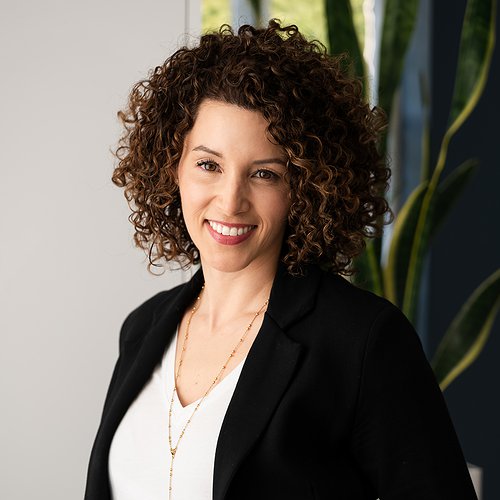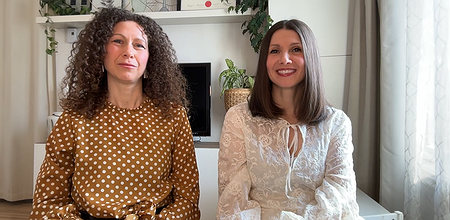- Define and conceptualize what resilience is
- Understand how resilience can be fostered with patients presenting various mental health issues.
- Apply specific cognitive, emotional, physical and behavioral strategies to increase resilience.
Crucial techniques and strategies to build resilience in our patients
Dr. Valentina Munoz, Psychologist
Help your patients thrive even when faced with life’s adversities.
Excerpt: a resilient mindset
- 2h30 of continuing education
- 21 lessons that last from 5 to 15 minutes each
- 1 certificate of achievement
- 1 power-point
- 1 bibliography
- 1 course evaluation
- 7-day money back guarantee
- Unlimited access
- 96% of participants who completed the satisfaction survey declare they would recommend this course to a colleague
Overview
Behind any request for therapy, often unbeknownst to them, patients are asking for help to increase their resilience. When resilience is suboptimal, the mastery of strategies acquired in therapy and long-term changes are more difficult to achieve, and relapse is more probable. In this workshop, Dr. Munoz explains how to conceptualize resilience and explains how you can reinforce your patients’ strengths while creating an in-session environment where resilience can be practiced. She also presents concrete strategies to support and increase your patients’ resilience by practicing a growth mindset, counteracting cognitive biases, developing a healthy relationship with emotions, bringing physical arousal into the resilience zone, and developing and practicing powerful habits that support long-term resilience. Ultimately, this workshop will enable you to help your patients thrive even when faced with adversity.
Accreditation
Collège des médecins du Québec
For physicians who practice psychotherapy, training recognized by the Ordre des psychologues du Québec is automatically considered as activities adopted by the Collège des médecins, in accordance with Article 3 of the Regulation.
For physicians who do not practice psychotherapy, the College evaluates each recognition request based on the following criteria:
- the relevance of the activity to the practice of the profession
- the skills and experience of the trainer
- the quality of the content and its adequacy with the physician's practice
- the pedagogical framework of the activity
- the quality of the documentation provided
- compliance with the training objectives set out in the regulation
- the presence of a certificate of participation or an evaluation
About the expert

Dr. Valentina Munoz, psychologist, is a clinical psychologist specializing in cognitive-behavioral therapy (CBT) for treating anxiety and stress-related issues in adults. She earned her PhD in clinical and research psychology from Université de Montréal, Canada, in 2005.
With extensive experience in private practice, Dr. Munoz provides psychotherapy and offers workshops for both the general public and mental health professionals. Her work focuses on anxiety disorders, burnout prevention, resilience, and stress management.
Dr. Munoz spent 10 years at the Douglas Mental Health University Institute, where she treated individuals with severe anxiety disorders and complex co-occurring issues, while also supervising PhD psychology interns. She has also served for many years as an external resource for the Canadian Armed Forces, supporting veterans coping with PTSD.
Valentina Munoz is a licensed member of the Ordre des Psychologues du Québec and is fluent in French, English, and Spanish.
Learning objectives
Learning material
This workshop includes theory as well as clinical examples. It includes videos ranging from 5-15 minutes in length. The PowerPoint of the workshop can be downloaded.
Syllabus
- PowerPoint
- 1. Presentation
-
Building a strong foundation
- 2. Definition & control
- 3. Healthy habits to strengthen resilience
- 4. Knowing your patient's strenghts to benefit resilience
- 5. Doing is key
-
The ABC model as a framework to implement strategies that increase resilience
- 6. ABC components
- 7. ABC concrete exercises
-
Engaging a resilient mindset
- 8. Growth and fixed mindsets
- 9. Impact and Miswanting biases
- 10. Biases counter strategies
- 11. Mindfulness & mindset takeaways
-
Coping with emotions
- 12. Emotion foundations & white polar bear exercise
- 13. Emotional avoidance & lack of permanence
- 14. Positive emotional states and happiness
- 15. Normalization of emotions
- 16. Desensitization of emotions and takeaways
-
Optimal physiological arousal for resiliency: The resilient zone
- 17. The Trauma resiliency model (TRM)
- 18. The five skills of the TRM and physical takeaways
-
Power habits to increase resilience
- 19. Social connections, reference points and savoring
- 20. Gratitude, kindness, experiential activities and resetting the adaptation bias
- 21. Behavioral takeaways
- Bibliography
CE Credits
Download a certificate of successful completion.
Audience
This training is intended for mental health professionals.
Your comments
"Excellent presentation
Good mix of theory and examples
Practical strategies and takeaways"
A psychologist (Canada)
"An excellent, engaging presentation. I very much enjoyed Dr. Munoz’s informal, conversational style of presenting the material." (automatically translated)
A psychologist (Canada)
Registration
Ask a question
Do you have a question? Then email us at contact@asadis.net
Frequently asked questions
-
Is there an evaluation at the end of the course?
To validate the achievement of the learning objectives, a final evaluation in the form of true/false questions is required. It must be completed in order to obtain the certificate of completion.
In addition, an optional self-assessment is offered at the beginning and end of the course, allowing you to measure your progress on the targeted skills.
These evaluations are not graded and are intended primarily to support your professional reflection.
-
I have a disability. Can I receive specific support?
Yes! This training is offered as a pre-recorded video format, without subtitles. If you have a disability, we can provide an adapted alternative (technical assistance for viewing or individual supervision). For any request, please contact our disability coordinator at the following address: contact@asadis.net
-
How long do I have access to the course?
After your registration, the course is accessible anytime and from anywhere with unlimited access.
-
When does the course start?
That is entirely up to you! When you buy a course, you'll receive an access link that you can activate when you want.
-
Is there a student rate?
Yes there is! To learn more, email us at contact@asadis.net.
You may also be interested in:
Legal notice
The courses offered by ASADIS are accredited by different professional organisations. In addition, ASADIS is approved by the Canadian Psychological Association to offer continuing education for psychologists. ASADIS maintains responsibility for the program.
The CPA’s approval of an individual, group, or organization as a CE Sponsor or Provider is restricted to the activities described in the approved application or annual report form. The CPA’s approval does not extend to any other CE activity the Sponsor or Provider might offer. In granting its approval, the CPA assumes no legal or financial obligations to Sponsors, Providers, or to those individuals who might participate in a Sponsor or Provider’s CE activities or programs. Further, responsibility for the content, provision, and delivery of any CE activity approved by the CPA remains that of the CE Sponsor or Provider. The CPA disclaims all legal liability associated with the content, provision, and delivery of the approved CE activity.




